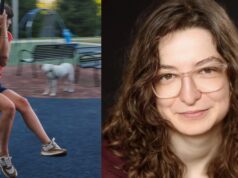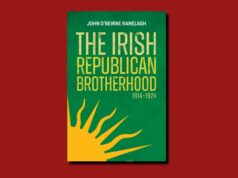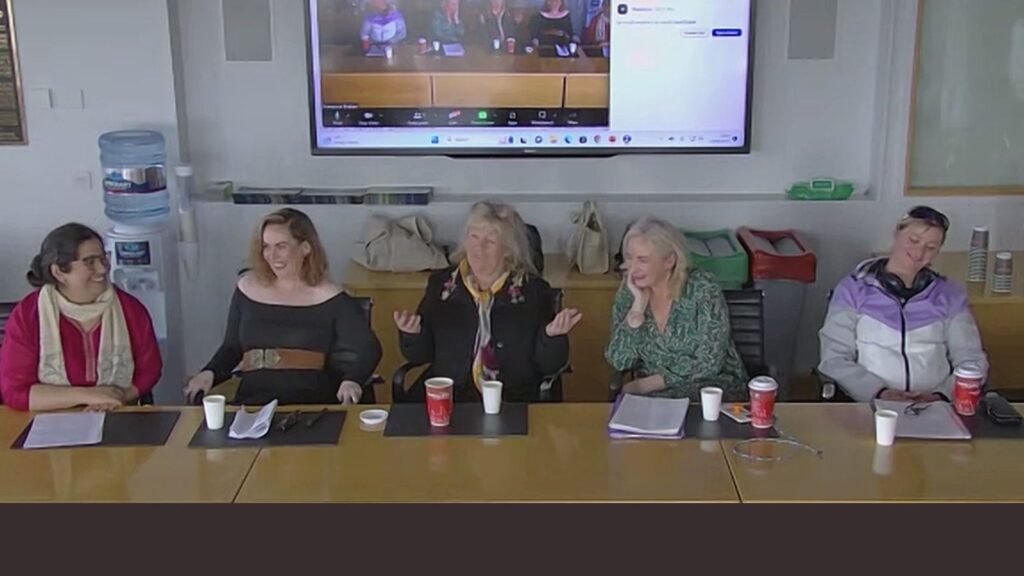
Traveller poets reflect on their lives, the welfare state, and making art in a roundtable discussion with Dr. Tapasya Narang

Traveller poets, Julie O’Leary O’Reilly, Winnie Ward, Chrissie Ward (and her daughter, Elizabeth Ward) met Dr. Tapasya Narang at the National University of Ireland, Maynooth for a roundtable discussion. What follows is a transcription of their reflections on Traveller lives, the welfare state, and making art, followed by a selection of their poetry.
Tapasya Narang: Your work speaks about the experiences of the Traveller community in Ireland. Could you please tell us more about this?
Chrissie Ward
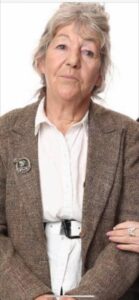
I am very old-fashioned; I am the last of that tribe, really. I was brought up on the side of a road. There is a lot of mixtures in travellers and they did everything. Traveller men did not just sell pots or pans; travellers were carpenters, tinsmiths, jewellery makers, horse trainers, storytellers. When they had no money, they made flowers with wood and sharpened knives. They were song writers and music players. They recycled everything they ever got—rags, woollens, brass, copper—you name it!
travellers were carpenters, tinsmiths, jewellery makers, horse trainers, storytellers
My father was murdered by the police, when I was about six. He left a big family behind; my sister was not born and my mother was in the hospital. And then, in County Galway, when my husband was four, his father was shot. It was assumed he was snaring a bunny when he was actually just warming himself in the field. A gamekeeper blew his head off. When you think of it, my husband has no father; I no father (breaks into tears). But, of course, times have changed. With smart people going around, we have a great future.
My father was murdered by the police, when I was about six
Years ago, money didn’t bother them; their head was the most important thing. For them, there was no time for sleeping; anytime was bed-time; anytime was their supper time. You wait till you are hungry and drink when you are dry. Then they were asked to settle down and they were given the dole. The dole was the ruination of them. For years, we were in Belfast. We made enough. Now dole is a bloody nuisance; it has us stuck in one place and it has taken Traveller’s pride and dignity. It makes Travellers lazy as well.
Julie O’Leary O’Reilly
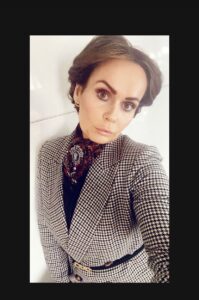
I was lucky enough, until I was six, I spent a couple of years with my grandfather and I learnt a great deal. What I came to understand was that the O’Leary side of the family were farming people. They were also saddle binders and horse trainers. They were hired by farmers. According to my grandfather and father, the change came in around 1940s in Ireland when the work became less because machinery came in and the Travellers were pushed towards towns and cities. In the 50s, they were asked to burn their wagons and to settle down and take the dole. They were told, they wouldn’t get social welfare unless they had a fixed address.
In 1993, I was the only Traveller in my school and I was bullied every day of my life. I was beaten from the age of 5.
We did not like going to the school because we have huge fear of the Catholic church. We were stolen from camps and taken from our parents, who were accused of neglecting the children. But they did it not due to neglect but to tame the Travellers. We have been treated like animals. In 1993, I was the only Traveller in my school and I was bullied every day of my life. I was beaten from the age of 5. I remember some nuns would say to me, “you are a heathen and you need a lesson.”
I hear the word kn***** every day and it really hurts
Nuns would put their pen in my earrings and pull it down (my mother would not let me take them off even though I wanted to get rid of them). I locked myself in a toilet from a teacher who had beaten me because she thought she had the authority. I was taken out of junior infants, and I was put into a special classroom. My teacher did not educate me there but beat me up. I could not do anything because, at home, my mother suffered with depression.
I hear the word kn***** every day and it really hurts me because when I went to school, the first thing I heard was, “I can’t even touch you, you are a kn*****.” I was married to a settled individual. My children inherited both cultures. They got the best of both worlds. Unfortunately, my 17 year old son is petrified that they will find out that he is partially a kn*****.
Things are looking up for us? I don’t think so. I think we are in the worst condition than we have ever been. Our mental health is suffering and suicide rates are high. We couldn’t live the life we wanted to live. Years ago, we were not poor or depressed but we followed non-materialism. Over the years, unfortunately, we have been educated to hate one another. We have received this from an older generation and that generation learnt it from the state and the church.
Our mental health is suffering and suicide rates are high
As time went on, we became more constricted in our beliefs and there were a lot of forced marriages. I came home when I was 16 years old and I was told to say “yes” by mother. I said, “no, thank you”. That didn’t go down well. We forget, Travelling women suffer in silence because we have experienced abuse. We are depressed but we are frightened to deal with it as we are scared that our children will be taken from us. If we come together and strategize, we could deal with depression among us. We need your help.
Tapasya Narang: Winnie, would you share how you began writing and what it means to you to write.
Winnie Ward
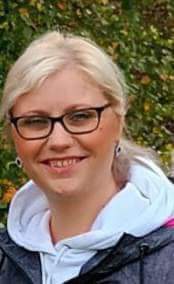
I have been through a lot of hardships in life and writing helps. I grew up in a caravan like most people and it was only in later years when my mom and dad got their first council house. We had been discriminated against for years; we were looked down on and called kn******.
It helps my mental health when I write
I tried college but it wasn’t for me. Now, I live in an apartment on my own. I started writing poetry in 2018, when I was in prison, and I have not looked back since. There are certain things in my life that I do not want to talk about. It helps my mental health when I write.
Tapasya Narang: Elizabeth, would you like to say something too?
Elizabeth Ward
I work with a Traveller group and I would love for them to get actual work and internships, instead of sitting at home. We are 87% less likely to get a job. I choose to not focus on that but go out in the world and empower one person at a time.
Tapasya Narang: Thanks for coming here. It has been an extraordinary privilege to hear your experiences. I would like to end with an appeal to the Arts Council, to Poetry Ireland and other cultural organisations to support Travellers’ writing and other artistic productions.
Carry Your Cross, by Chrissie Ward
Go Travellers go
Carry your cross
It’s all we’re going to give you
A present from birth surely meant to last
A gift you will remember
In the wet fields when you are towed around
When you get a bad cough from the damp ground
And doctors turn you out
Go Travellers go
Bear your cross
It’s all we’re going to give you
A present from birth surely meant to last
A gift you will remember
When you’re told:
“Move you dirty knackers”
Our land
Get your dirty caravans far away from here
Go travellers go
Carry your cross
It’s all we’re going to give you
A present from birth surely meant to last
A gift you will remember
When you’re told in a public bar
“your type of people are not wanted here”
Go Travellers go
Leave the cross behind
A present from the Irish
Until you die.
A Writer’s Heart, by Julie O’Leary O’Reilly
Hazy days of jazz and coffee beans filled with the ash of swirling cigarette smoke. Thoughts of Gods and love fill their very soul.
Hopes of lust stands within their mortal bones.
Fire and ice is their choice of cake to be eaten in whole.
Dark and weary thoughts of the philosopher’s gold, rest well in their minds. The mind of a writer is filled with sorrow that are awash with tears.
Life is filled with ink splats and crumpled paper.
Chasing the dream of destiny is not a choice but the madness of their desire, fuelled by an impetuous heart.
Tweed is the flavour of their soul wrapped in whisky breath.
The cost of their ink lays heavy on their mind of nonsense.
But the truth be told the writers heart is truly made from clear and piercing gold.
Let the world know that every writer is a God of old that sits within the Greek hallways of the philosopher’s stone.
Little Angels, by Winnie Ward
Some babies are born but don’t survive,
Family wishing they were still alive
Doctors come with the sad news to break
A lot of tears and pain and ache
A short period of time with them is spent
It feels like the heartache will never end
Pictures and memories is all that’s left,
It is every person’s nightmare with the hurt and pain felt
You keep questioning, ‘of why god me’
But some things are just meant to be,
Little angels are laid to rest
God only takes the best.









